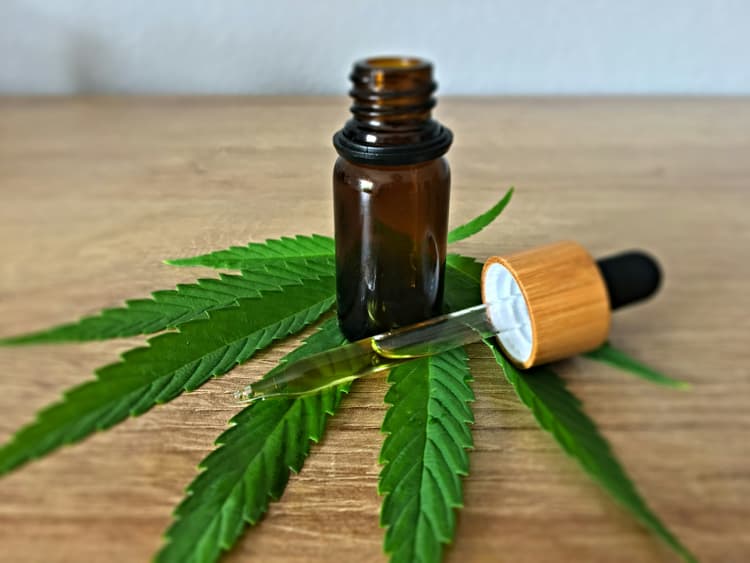The medicinal hemp industry is rapidly expanding, offering entrepreneurs an opportunity to build a profitable and impactful business. However, due to strict regulations and legal complexities, starting a hemp-based company requires careful planning and compliance with federal and state laws. From obtaining the right licenses to marketing your products ethically, every step matters in ensuring your business operates legally and successfully. Here’s what you need to know to start a legal business selling medicinal hemp products.

How to Start a Hemp Business
Understanding the Legal Framework: Federal and State Regulations
Before launching your business, you must fully understand the legal framework surrounding medicinal hemp. The 2018 Farm Bill legalized hemp-derived products containing less than 0.3% THC, but individual states have their own regulations regarding cultivation, processing, and sales. Some states impose stricter requirements, such as additional licensing, testing, and labeling mandates. Researching both federal and state laws ensures you operate within legal boundaries and avoid costly fines or shutdowns. Staying compliant from the start protects your business and builds trust with consumers.
Obtaining the Necessary Licenses and Permits
To legally sell medicinal hemp products, you’ll need the appropriate licenses and permits based on your business model. This may include a hemp processing license, retail sales permit, and even a specific business registration depending on your state’s requirements. Some states also require lab testing certification to prove your products meet safety and potency standards. Without these approvals, your business risks legal repercussions that could hinder your ability to operate. Taking the time to secure all necessary documentation is a crucial step in launching a compliant hemp business.
Sourcing High-Quality, Compliant Hemp
The success of your business depends on the quality of your hemp products, so sourcing from reputable, compliant suppliers is essential. Look for hemp producers that follow USDA guidelines and provide third-party lab test results verifying cannabinoid content and purity. Working with transparent suppliers ensures your products meet legal THC limits and don’t contain harmful contaminants. Establishing relationships with trusted hemp farms and extractors can also help you maintain consistency and credibility in a competitive market. Quality assurance is key to gaining consumer confidence and standing out in the industry.
Conducting Market and Product Research
Understanding market trends and consumer demand is essential when launching a successful hemp business. Conducting thorough product research allows you to identify what’s driving the industry, what customers are looking for, and how to position your offerings effectively. This involves analyzing competitors, monitoring sales data, and staying informed about emerging innovations in the space. Researching and reviewing different formulations like THCa diamonds can also help you determine which products have high consumer interest and align with legal compliance. The more insight you gather, the better equipped you’ll be to create products that resonate with your target audience.
Developing a Strong Business and Branding Strategy
A well-thought-out business plan and branding strategy will set the foundation for your success in the medicinal hemp industry. Clearly define your target market, product offerings, and pricing structure to create a roadmap for growth. Additionally, branding plays a critical role in differentiating your products from competitors and building customer loyalty. Whether you focus on organic full-spectrum oils, topicals, or edibles, establishing a unique identity will help attract and retain buyers. A compelling brand story combined with strategic marketing efforts can enhance your visibility and credibility.
Navigating Payment Processing and Banking Challenges
Many financial institutions are still hesitant to work with hemp businesses, making payment processing and banking a challenge. Some traditional banks view the industry as high-risk, leading to account closures or restrictions. To avoid issues, seek out banks and payment processors that specialize in cannabis-related businesses. Alternative financial solutions, such as hemp-friendly merchant accounts and blockchain-based transactions, can also help facilitate secure payments. Addressing these financial hurdles early on ensures seamless transactions and reduces operational risks.
Marketing and Advertising Within Legal Boundaries
Marketing medicinal hemp products comes with unique restrictions, particularly on digital platforms like Google and social media. Many major advertising networks prohibit paid promotions for hemp-derived products, requiring businesses to get creative with their marketing strategies. Content marketing, influencer partnerships, and SEO-driven campaigns can help increase brand awareness without violating advertising policies. Ensuring all claims are backed by credible research and avoiding unverified health statements will also keep you compliant with FDA guidelines. Ethical and transparent marketing helps build trust and keeps your business on the right side of the law.
Ensuring Proper Product Labeling and Compliance
Labeling and packaging play a crucial role in maintaining compliance and informing consumers about what they’re purchasing. The FDA and state regulations require hemp product labels to include specific details, such as cannabinoid content, ingredient lists, and disclaimers. Mislabeling or making unapproved health claims can lead to legal penalties and recalls. Investing in accurate labeling software or consulting with legal professionals can help you meet all regulatory requirements. Clear, informative packaging not only ensures compliance but also enhances customer confidence in your brand.
Starting a legal business in the medicinal hemp industry requires a strong understanding of regulations, quality sourcing, and ethical marketing. But with careful planning, you can build a reputable and legally sound hemp business. By staying informed and prioritizing transparency, you can create a thriving enterprise while making a meaningful impact in the wellness industry.

Leave a Reply